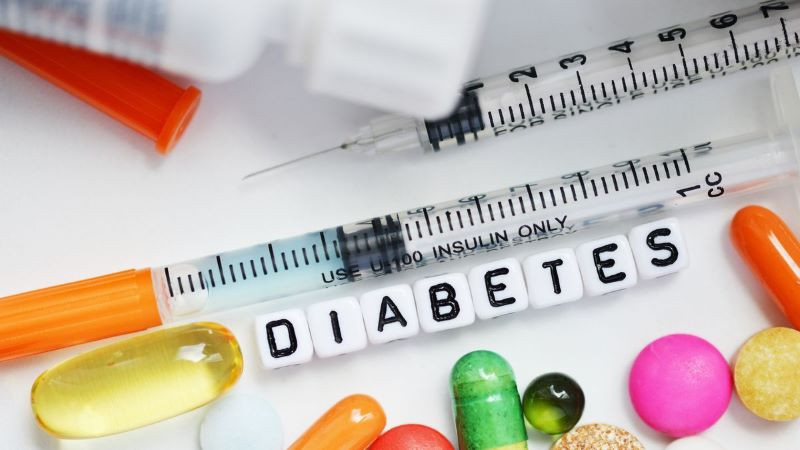
FACED with a life-threatening chronic condition and a bleak future, Nyasha Chiketo (14) became more bitter after she was denied entry into a formal school.
The girl was diagnosed with type 1 diabetes at age four, marking the beginning of a turbulent life.
According to her father, Mutare-based journalist, Bernard Chiketo, she was denied entry to formal learning centres with school authorities recommending home schooling in lower grades due to her condition then.
“When Nyasha was diagnosed at age four, she was placed on medication that required us to give her four injections daily, completely transforming her childhood. It meant we had to monitor and control her after taking injections.
“It also meant that she could never skip a meal as food became part of her medication. She needed close monitoring as she occasionally collapsed after suffering hypos despite us doing everything by the book. She resultantly dropped out of kindergarten and because of her condition we could not risk her life by enrolling her in school for ECD and lower grades,” he said.
Chiketo revealed that her daughter was home schooled until Grade 4.
“When we, however, tried to enrol her at the school (name supplied) the headmaster and his deputy refused, arguing that she was "too sick" for their teachers to be able to monitor her due to a high pupil-teacher ratio of 1:50.
“This was despite the school authorities having earlier referred her to the Schools Psychological Services to have her evaluated on which grade was appropriate for her. The fact that she needed to break for food at between 8am and 9am then eat again at 10am as well as her lunch around midday if she was to avoid collapsing in class was also cited as another reason for not taking her in,” revealed Chiketo.
- Health talk: Covid-19: Remain vigilant as Omicron roams
- Health talk: Covid-19: Remain vigilant as Omicron roams
- NewsDay journo narrates battle with diabetes
- 2022: An eventful year for health sector
Keep Reading
There began a merry-go-round as they were referred to several people within the Education ministry
“We finally appealed to the provincial education director who referred us to the district schools inspector who intervened and ordered the school to enrol her.”
“She went on to perform relatively well despite losing time when she went out to eat as the teachers were reluctant to pause their lessons when she took a health break to raise her blood glucose levels.
“We then enrolled her at a private school for her Form 1 but because of the delicate nature of her health, we reverted to home schooling again for her Form 2,” he said
Chiketo said their worries and challenges began again as she started having more problems at school.
“While she would sometimes be taken back home sick by the school, she would also be asked to sleep at school which we felt was unsafe especially when she did not have consumables for her glucometer.
“We felt this was a huge gamble on her life with homeschooling being a much safer alternative despite her desire to be a "normal student,” he said.
Nyasha has suffered discrimination from circles around her and it has also been a terrible experience at the hands of her private tutors with one ejecting her for being “too sick”.
Chiketo said his daughter grew up faster, learnt to read and count early so that she could measure her medication, learn to manage time and understand her body as well as know all the foods that convert into blood glucose.
Nyasha’s predicament is not purculiar to young people who fight diabetes up to adulthood.
Poor diabetes management, when it manifests late in life, may also lead to amputation or blindness.
According to the United States Centers for Disease Control and Prevention (CDC), diabetes is a chronic (long-lasting) health condition that affects how one’s body turns food into energy.
“The downside has been that she is unable to visit every relative she would want to as she needs monitoring 24/7. She cannot sleep alone,” added Chiketo.
He said the thought of injecting herself every morning and evening has also been traumatic to her.
“We are in all honesty not providing her with the appropriate medical supplies and medical consumables as well as food. We have also not been able to afford her regular medical reviews or her dietary requirements but we are doing fairly well, improvising,” he said.
Nyasha needs around US$50 for her insulin alone and has gone for months without a glucometer to be able to monitor her sugar levels.
Chiketo and his wife have never had it all rosy since Nyasha's diagnosis with diabetes as they live in constant fear of the worst happening to their jewel.
“As parents, our biggest worry is on one end fear of her slipping into a diabetic coma if we try to control her blood glucose too tightly, and organ failure or amputation if we allow it to stay too high.
“The first thing we do every morning is to check if she can wake up, and if she turns or raises her hand when we shake her we thank God for her life,” Chiketo said.
“We cannot afford to even switch off our phones if she is not with us. We know, from experience, that things can go wrong any moment even after doing everything properly.”
Experiencing such a condition in their own home has taught Chiketo and his wife to appreciate life.
It is estimated that one in 10 children has diabetes and the figure is expected to rise as there has been an increase in new cases.







